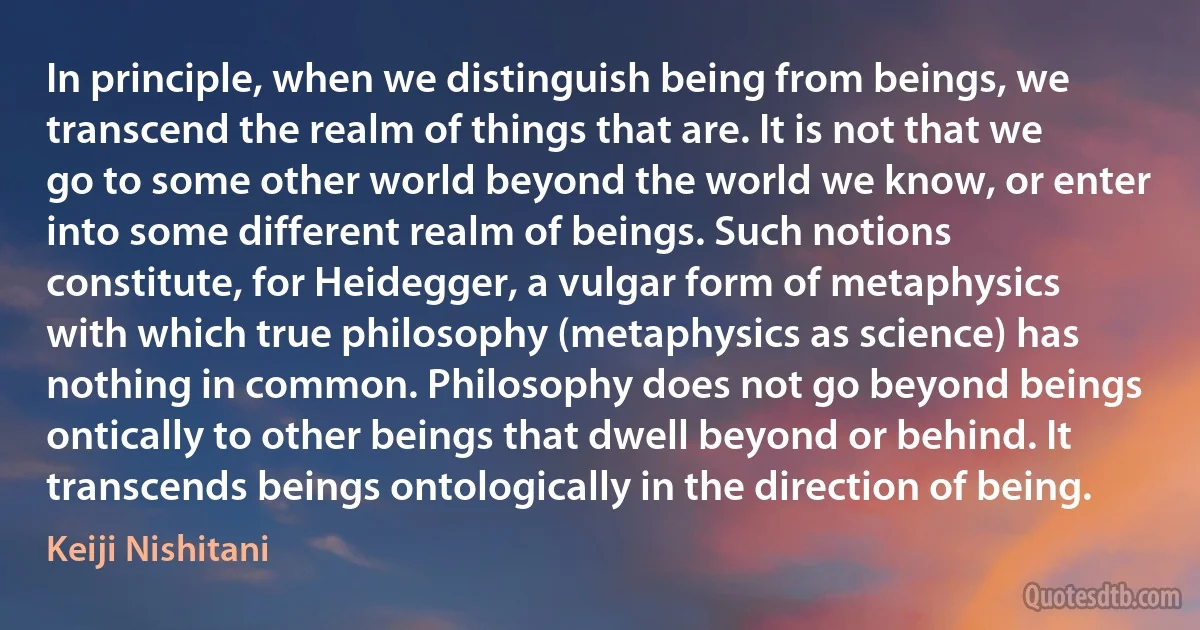Keiji Nishitani quotes
From the perspective of Buddhism, Sartre's notion of Existence, according to which one must create oneself continually in order to maintain oneself within nothing, remains a standpoint of attachment to the self – indeed, the most profound form of this attachment – and as such is caught in the self-contradiction this implies.

Keiji Nishitani
On the one hand, nihilism is a problem that transcends time and space and is rooted in the essence of human being, an existential problem in which the being of the self is revealed to the self itself as something groundless. On the other hand, it is a historical and social phenomenon, an object of the study of history. The phenomenon of nihilism shows that our historical life has lost its ground as objective spirit, that the value system which supports this life has broken down, and that the entirety of social and historical life has loosened itself from its foundations. Nihilism is a sign of the collapse of the social order externally and of spiritual decay internally - and as such signifies a time of great upheaval. Viewed in this way, one might say that it is a general phenomenon that occurs from time to time in the course of history.

Keiji Nishitani

